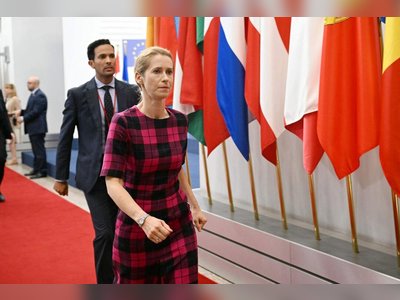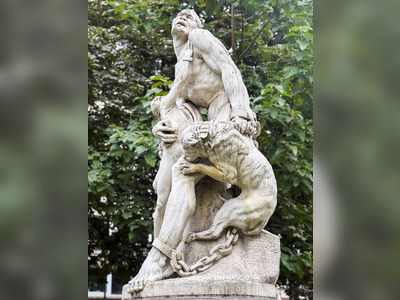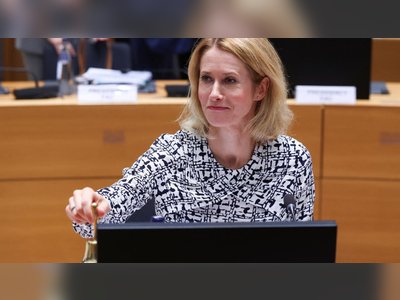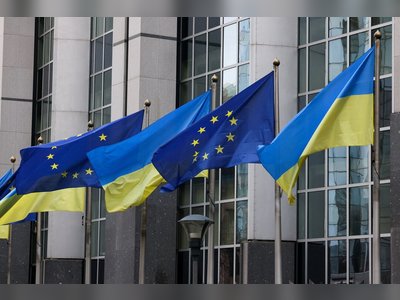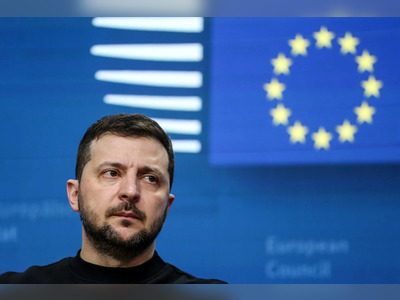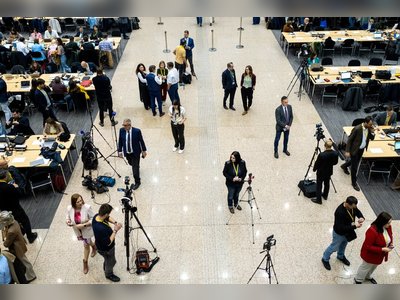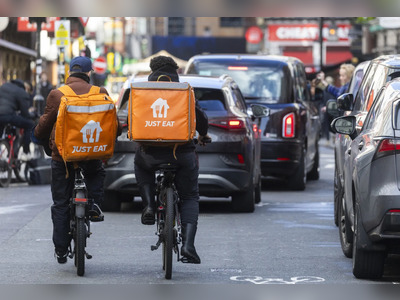German Election: AfD Nominates Alice Weidel as Chancellor Candidate
Alice Weidel becomes the first AfD candidate for Chancellor as the party aims to surpass 20% in upcoming elections.
Brussels – The official start of Germany's election campaign has begun, with citizens heading to the polls on February 23 to elect a new Bundestag and government.
For the first time, the far-right Alternative für Deutschland (AfD) has nominated a candidate for Chancellor, selecting party co-president Alice Weidel at the 16th federal congress held in Riesa, Saxony.
This marks a significant step for the party, which seeks to cross the 20% threshold and potentially overtake the Social Democrats (SPD) led by outgoing Chancellor Olaf Scholz.
Alice Weidel, co-president since June 2022 alongside Tino Chrupalla, expressed her gratitude for the nomination at the congress, held in one of the AfD's strongholds in former East Germany.
This region has historically shown substantial support for the party, as evidenced by recent electoral successes.
The party's announcement comes amidst a backdrop of projected gains in opinion polls, with the AfD poised to secure approximately 20% of the vote, potentially reaching as high as 22%, according to some estimates.
This is a significant increase from the 10.4% they received in the 2021 federal elections, where they secured 83 seats in the Bundestag.
The SPD recently confirmed Olaf Scholz as their candidate, following the withdrawal of potential challenger Defense Minister Boris Pistorius.
As the Social Democrats contend for third place against their coalition partners, the Greens, their projected support ranges between 16% and 14%, which could mark their worst result in over 160 years.
On the other hand, the conservative Christian Democratic Union (CDU/CSU), led by Friedrich Merz, maintains the lead with an estimated 31% of the vote.
Despite the AfD's increased popularity, particularly in the eastern regions of Germany, traditional parties continue to uphold the cordon sanitaire, refusing to form coalitions with the far-right party at both local and national levels.
Internationally, the AfD's rise has not gone unnoticed.
Elon Musk, speaking on his platform X, praised Weidel's candidacy, asserting that 'only the AfD can save Germany,' a comment that has generated significant reaction in both Berlin and Brussels.
Internally, the AfD faces challenges with reported divisions within the party.
Some of its more fundamentalist factions have criticized the leadership for moderating its stance on various issues.
These internal debates were apparent at the Riesa congress, especially concerning the reform of the party’s youth wing, Junge Alternative, which was recently classified as 'extremist' by German authorities last June and has historically been at odds with the party leadership.
For the first time, the far-right Alternative für Deutschland (AfD) has nominated a candidate for Chancellor, selecting party co-president Alice Weidel at the 16th federal congress held in Riesa, Saxony.
This marks a significant step for the party, which seeks to cross the 20% threshold and potentially overtake the Social Democrats (SPD) led by outgoing Chancellor Olaf Scholz.
Alice Weidel, co-president since June 2022 alongside Tino Chrupalla, expressed her gratitude for the nomination at the congress, held in one of the AfD's strongholds in former East Germany.
This region has historically shown substantial support for the party, as evidenced by recent electoral successes.
The party's announcement comes amidst a backdrop of projected gains in opinion polls, with the AfD poised to secure approximately 20% of the vote, potentially reaching as high as 22%, according to some estimates.
This is a significant increase from the 10.4% they received in the 2021 federal elections, where they secured 83 seats in the Bundestag.
The SPD recently confirmed Olaf Scholz as their candidate, following the withdrawal of potential challenger Defense Minister Boris Pistorius.
As the Social Democrats contend for third place against their coalition partners, the Greens, their projected support ranges between 16% and 14%, which could mark their worst result in over 160 years.
On the other hand, the conservative Christian Democratic Union (CDU/CSU), led by Friedrich Merz, maintains the lead with an estimated 31% of the vote.
Despite the AfD's increased popularity, particularly in the eastern regions of Germany, traditional parties continue to uphold the cordon sanitaire, refusing to form coalitions with the far-right party at both local and national levels.
Internationally, the AfD's rise has not gone unnoticed.
Elon Musk, speaking on his platform X, praised Weidel's candidacy, asserting that 'only the AfD can save Germany,' a comment that has generated significant reaction in both Berlin and Brussels.
Internally, the AfD faces challenges with reported divisions within the party.
Some of its more fundamentalist factions have criticized the leadership for moderating its stance on various issues.
These internal debates were apparent at the Riesa congress, especially concerning the reform of the party’s youth wing, Junge Alternative, which was recently classified as 'extremist' by German authorities last June and has historically been at odds with the party leadership.
AI Disclaimer: An advanced artificial intelligence (AI) system generated the content of this page on its own. This innovative technology conducts extensive research from a variety of reliable sources, performs rigorous fact-checking and verification, cleans up and balances biased or manipulated content, and presents a minimal factual summary that is just enough yet essential for you to function as an informed and educated citizen. Please keep in mind, however, that this system is an evolving technology, and as a result, the article may contain accidental inaccuracies or errors. We urge you to help us improve our site by reporting any inaccuracies you find using the "Contact Us" link at the bottom of this page. Your helpful feedback helps us improve our system and deliver more precise content. When you find an article of interest here, please look for the full and extensive coverage of this topic in traditional news sources, as they are written by professional journalists that we try to support, not replace. We appreciate your understanding and assistance.

